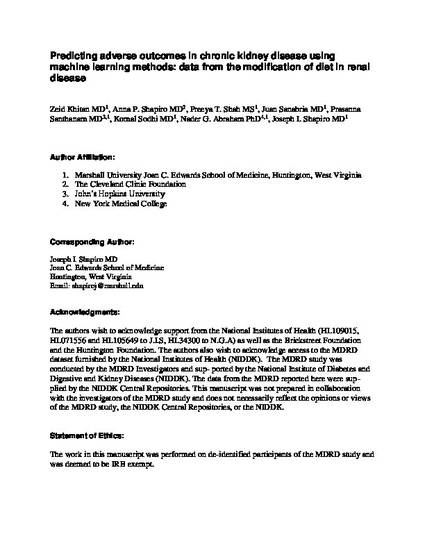
- hypertension,
- blood pressure,
- chronic renal disease,
- correlation,
- machine learning,
- cardiovascular disease
Background: Understanding factors which predict progression of renal failure is of great interest to clinicians.
Objectives: We examined machine learning methods to predict the composite outcome of death, dialysis or doubling of serum creatinine using the modification of diet in renal disease (MDRD) data set.
Methods: We specifically evaluated a generalized linear model, a support vector machine, a decision tree, a feed-forward neural network and a random forest evaluated within the context of 10 fold validation using the CARET package available within the open source architecture R program.
Results: We found that using clinical parameters available at entry into the study, these computer learning methods trained on 70% of the MDRD population had prediction accuracies ranging from 66-77% on the remaining 30%. Although the support vector machine methodology appeared to have the highest accuracy, all models studied worked relatively well.
Conclusions: These results illustrate the utility of employing machine learning methods within R to address the prediction of long term clinical outcomes using initial clinical measurements.
Available at: http://works.bepress.com/zeid_khitan/12/
